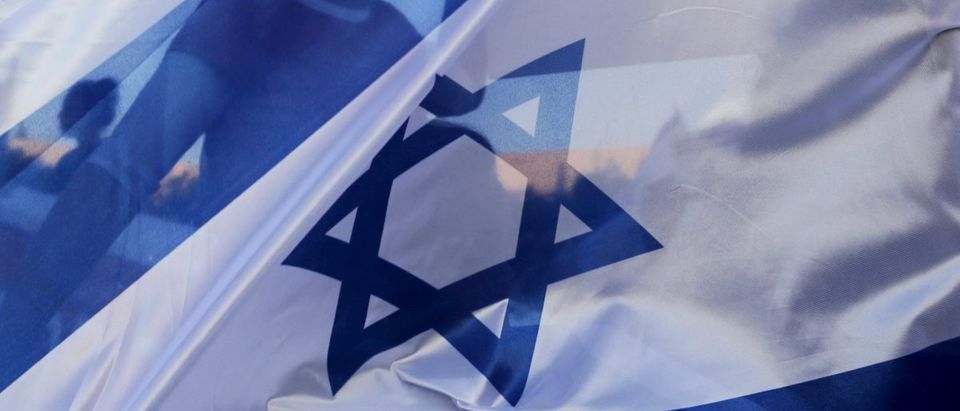It is an anti-Semite’s holiday. The headlines this week ran that Washington would be awarding Jerusalem an unprecedented $38 billion for military spending. For more than a decade it has been the anti-Semite’s mantra that the yearly, roughly some $3 billion invoice on the United States’ foreign accounts payable is proof of Israel’s sway over Washington politics. The recent advance for a decade that has increased will surely cause the Palestinian Authority camp to sing sorrow songs while the liberal blood boils in America’s major cities.
The same anti-Semitic faction that is so quick to label American politics tainted by Zionism, though, in their newfangled ranting and outrage will be ignored by the likes of rational diplomacy this time, as their whining has thankfully been muted for the last ten years. The formidable $38 billion is not a Bar Mitzvah gift, like the federal bonds I received as a Jewish 13-year-old in America. It is rather an advance for a loan guarantee. Why would Washington approve such an advance of cash that did not directly drive revenue above expected profit margins? The loan guarantee is to be spent by the Israel Defense Forces on American products who will enjoy the profit as domestic corporations such as Boeing, BAE Systems, Raytheon and others.
But according to all the profit being made by American companies, the Obama administration insists that with this loan guarantee it has purchased the right to dictate policy to Jerusalem. A recent article in The Jewish Telegraph Agency reads:
“The agreement signed Wednesday in the State Department’s Treaty Room…increases assistance for Israel over the prior Memorandum of Understanding signed in 2007 under the George W. Bush administration and guaranteeing Israel $31 billion over 10 years.”
But even that loan guarantee sold Israel out, in a way. George W. Bush convinced Israel to leave its settlements on the Gaza Strip, resulting in a disastrous political climate in which Hamas easily took control over the area with the help of Iranian financing.
The deal which will go into effect in October, 18, was helmed by the U.S. National Security Adviser, Susan Rice, who insisted that Israel may only spend about 26% of $38 billion intended for ten years of military coverage, on its own products. And even “that will be phased to zero by the end of the agreement, and all funding will be spent on U.S. suppliers and contractors.”, according to the September, 15th report in the Jewish Telegraph Agency, the newswire which feeds the entire Anglo-Jewish press.
Because the White House thinks it can own Israeli policy with $38 billion in loan guarantees, the Jewish state must remain steadfast against the pressures of the Obama administration to create and nurture a two-state solution with the Palestinians, and set-up Hillary Clinton to inherit this Americanized policy in Jerusalem.
According to Israeli sources, this is where the $38 billion will be spent over ten years:
- The Israel Air Force is supposedly in need of new heavy-lift helicopters to replace the CH-53 Sea Stallions which are called Yassour in Israel. These were purchased from the Americans in 1969. Used during the Second Lebanon Invasion, these are most often used to transport Israeli troops. Technological advances have been made for the chopper, but in the year 2025, according to sources, Israel will need a new helicopter. It will either purchase the CH-47 Chinook or the CH53-Stallion. Both these choppers are made by Sakorsky, whose parent company is Lockheed Martin.
- The IAF’s current fleet of long-distance refuel tankers are Boeing KC-707s, which according to reports will not last much longer. Jerusalem has long been looking for a jet that can hold enough fuel to reach Iran. The U.S. Air Force will soon be using the Boeing KC-46 Pegasus for long-range missions and Israel would like a piece of the action at $180 million per aircraft.
- According to the Jerusalem Post, in May, 2015, Israel ordered $1.8 billion worth of guided munitions and bombs known as “bunker busters” to fight the likes of Hamas and Hezbollah.
- The IDF is in the market to purchase half a dozen Bell-Boeing V-22 choppers.
- Last June, according to my source, the Israeli Air Force bought its first F-35 stealth fighter jet. It would like to repeat that purchase over and over until it becomes the IAF’s main fleet. Jerusalem has thus far ordered 33 F-35s and is looking to purchase up to 50.
- The overall budget for missile defense funding, keeping in mind the frequency with which Hamas fires rockets into Israel, is $5 billion for ten years.












